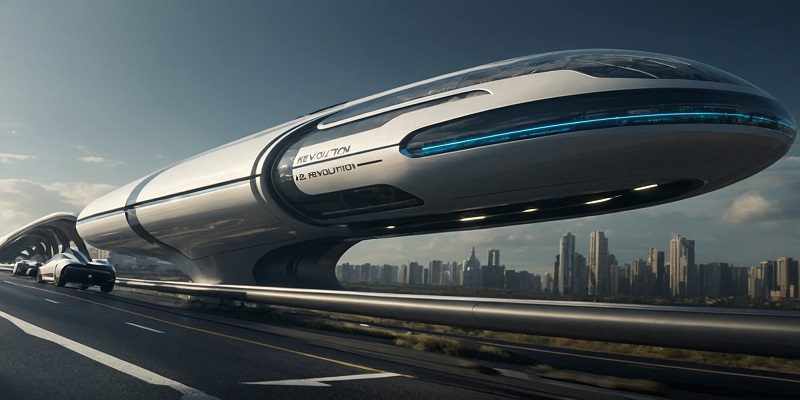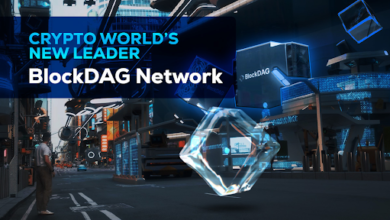Revolutionizing Transportation: A Glimpse into the Future

The transportation industry stands on the cusp of a revolution. The integration of cutting-edge technology is reshaping the way we perceive and utilize transportation systems. From autonomous vehicles to hyperloop technology, the landscape of connected transportation is evolving at an unprecedented pace. In this article, we delve into 10 revolutionary trends that are accelerating change in connected transportation technology.
Autonomous Vehicles:
Redefining Mobility
Autonomous vehicles, once a futuristic concept, are now a reality shaping the future of transportation. These self-driving cars utilize artificial intelligence (AI) and sensor technology to navigate roads without human intervention. With companies like Tesla, Waymo, and Uber investing heavily in autonomous vehicle technology, we are witnessing a paradigm shift in the way we commute.
Electric Mobility:
Towards Sustainable Transportation
The shift towards electric mobility is driving sustainability in transportation. Electric vehicles (EVs) offer a cleaner alternative to traditional gasoline-powered cars, reducing carbon emissions and mitigating environmental impact. With advancements in battery technology and infrastructure, EV adoption is on the rise, paving the way for a greener future.
Hyperloop Technology:
Revolutionizing High-Speed Travel
Hyperloop technology promises to revolutionize high-speed travel, enabling passengers to traverse long distances at incredible speeds. With the potential to reach speeds exceeding 700 mph, hyperloop systems could significantly reduce travel time between cities, fostering greater connectivity and efficiency in transportation networks.
Connected Infrastructure:
Enhancing Efficiency
The concept of connected infrastructure involves integrating transportation systems with digital technologies to enhance efficiency and safety. Smart traffic management systems, intelligent transportation networks, and vehicle-to-infrastructure communication are key components of connected infrastructure, optimizing traffic flow and reducing congestion on roads.
Mobility as a Service (MaaS):
Transforming Urban Transportation
Mobility as a Service (MaaS) is revolutionizing urban transportation by offering convenient, on-demand mobility solutions. Through integrated platforms and mobile apps, users can access a variety of transportation options, including ride-sharing, public transit, bike-sharing, and more, all within a single interface. Thus, MaaS aims to streamline urban mobility, reducing reliance on private car ownership and promoting sustainable transportation alternatives.
Augmented Reality Navigation:
Redefining the Driving Experience
Augmented reality (AR) navigation systems are transforming the driving experience by providing real-time visual overlays of navigation instructions and information. Furthermore, by overlaying digital images onto the real-world environment, AR navigation enhances situational awareness for drivers, improving safety and efficiency on the road.
Drone Delivery Services:
The Future of Last-Mile Logistics
Drone delivery services are revolutionizing last-mile logistics by offering fast and efficient delivery solutions for packages and goods. With drones capable of navigating congested urban areas and reaching remote locations, companies like Amazon and UPS are exploring the potential of drone technology to revolutionize the delivery industry, reducing delivery times and costs.
Blockchain in Transportation:
Ensuring Security and Transparency
Blockchain technology is making waves in the transportation industry by offering secure and transparent solutions for logistics and supply chain management. Thus, by leveraging decentralized ledgers and smart contracts, blockchain enables traceability, accountability, and tamper-proof record-keeping throughout the transportation process, from procurement to delivery.
5G Connectivity:
Powering the Future of Connected Vehicles
5G connectivity is set to revolutionize connected vehicles by providing high-speed, low-latency communication capabilities. Moreover, with ultra-fast data transmission rates and minimal latency, 5G networks enable real-time communication between vehicles, infrastructure, and cloud-based services, paving the way for advanced driver assistance systems (ADAS), vehicle-to-everything (V2X) communication, and autonomous driving.
Sustainable Aviation:
Towards Greener Skies
Sustainable aviation initiatives are transforming the aerospace industry, aiming to reduce carbon emissions and environmental impact. In addition, from electric aircraft and biofuels to hydrogen-powered engines, aviation companies are exploring innovative technologies to create a more sustainable future for air travel, ensuring that the skies remain blue for generations to come.
Conclusion
The future of transportation is marked by innovation, disruption, and transformation. As we embrace revolutionary technologies such as autonomous vehicles, hyperloop systems, and drone delivery services, we are reshaping the way we move people and goods from point A to point B. Additionally, with a focus on sustainability, efficiency, and connectivity, the transportation industry is poised to accelerate change and usher in a new era of mobility.





